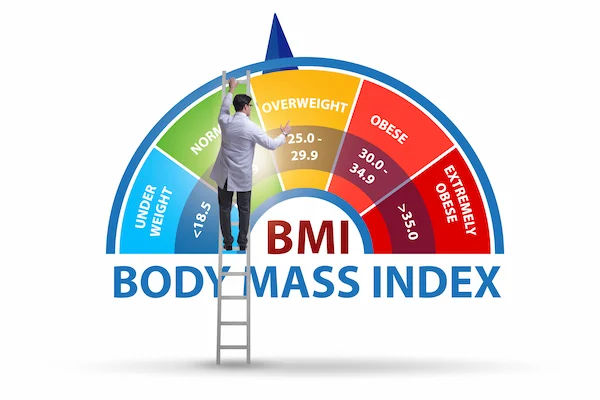Importance of Eating Habits: Guide to Balanced Nutrition and Health
Learn how eating habits impact health and well-being. Explore the importance of balanced diets, cultural influences, modern lifestyle challenges, and tips for cultivating healthy eating habits for a better life.

Written by
Last updated on 13th Jan, 2026
Ever wondered why some people seem to effortlessly maintain their health while others struggle despite eating similar foods? The secret often lies not just in what we eat but in how we eat.
Our eating habits, the when, where, and how of our meals, play a crucial role in our overall health and well-being. From the pace at which we consume our food to the environment we choose for our meals, these patterns shape not only our nutrition but also our relationship with food and its impact on our bodies.
Across the globe, eating habits vary dramatically, influenced by culture, economics, and food availability. While some societies embrace plant-based diets rich in whole foods, others have shifted toward processed convenience foods—each choice carrying its own implications for health and nutrition.
Keep reading to find out how you can cultivate healthy eating habits and the benefits of doing so.
Importance of a Balanced Diet and Nutrition
Every bite we take shapes our well-being. A balanced diet isn't just about satisfying hunger. It's the foundation of a healthy, vibrant life.
Nutritionally balanced eating entails the consumption of the essential essential elements, each of which has its importance in the effective functioning of the body:
Carbohydrates for giving energy
Proteins for repairing tissues
Fats
Vitamins for bolstering the immune system
Minerals
Water
When we consistently consume these nutrients in proper proportions, we not only support normal growth and development but also reduce our risk of chronic conditions like diabetes, heart disease, and obesity. Beyond physical health, proper nutrition enhances mental clarity and emotional stability.
Role of Eating Habits in Health
Our eating habits - when, how, and what we eat - profoundly influence both body and mind. Regular, mindful eating patterns strengthen family bonds and protect against digestive issues and common illnesses.
Poor eating often leads to:
Hypertension
Malnutrition
Reduced immunity
The mental health impact is equally significant: diets rich in omega-3 fats, antioxidants, and essential vitamins help combat depression and anxiety, while those high in processed sugars and unhealthy fats can contribute to mental health challenges. Every meal is an opportunity to nourish both body and mind.
Common Poor Eating Habits and Their Outcomes
Realising the consequences of eating improperly will guide one on what should be done. A number of these habits are particularly harmful to health:
In some cases, one might go on and overeat due to emotional reasons. This leads to taking in more calories than necessary and becoming overweight or obese. This in itself can pose a serious risk for the development of chronic illnesses such as type 2 diabetes or heart disease.
Skipping meals, especially breakfast, can wreak havoc on the body in terms of metabolic processes. It may lead to exhaustion, inability to concentrate, and binge eating at subsequent times, further affecting overall health.
Cultivating Healthy Eating Habits
Developing healthy eating habits requires thoughtful planning and consistent effort. But with the right approach, anyone can build a healthier relationship with food.
Meal planning ensures the inclusion of nutritious foods while reducing reliance on processed options. Preparing meals at home allows for better control over ingredients, portion sizes, and cooking methods.
The best way to regulate caloric intake and avoid overeating is to practise portion control. Ways to prevent overindulgence include using smaller plates and serving smaller portions.
Role of Culture and Traditions in Eating Habits
Traditional eating patterns often reflect deep ecological and nutritional knowledge.
For instance, the traditional Mexican practice of nixtamalisation—treating corn with lime increases its nutritional value by making niacin more bioavailable and adding calcium.
Similarly, the Korean tradition of kimchi fermentation not only preserves vegetables but creates beneficial probiotics.
Many indigenous cultures worldwide practice food combining that modern science has validated - like pairing rice and beans to create complete proteins, or eating vitamin C-rich foods with iron-rich plants to enhance absorption.
Effect of Modern Lifestyles on Eating Habits
Modern living conditions nowadays, with fast pace and convenient availability, have a huge mental impact on eating habits.
The popularity of fast food translates into overconsumption of high-calorie, low-nutrient foods. With such trends, the problem of obesity will rise even more, accompanied by consequential health problems.
On-the-go eating, common among busy professionals, often involves quick and less nutritious options. This practice can compromise dietary quality and long-term health outcomes.
Special Diets And Why They Are Special
Special diets are intended to address specific health or ethical issues and have individual approaches to nutrition.
For example, plant-based food brings a myriad of health benefits. Reducing the risk of developing cardiovascular diseases-better digestion-reduction in environmental footprint. This diet is based majorly on fruits and vegetables, whole grains, and healthy fats and has a verifiable reputation for ensuring heart health.
Conversely, it also supports cognitive health as well as longevity.
Challenges to Maintaining a Healthy Diet
There may be emotional and social impediments to maintaining healthy eating habits. Removing these obstacles is central to making sustainable changes in the long term about the type of diet.
Emotional eating takes the form of eating food in response to stress rather than hunger.
Identifying triggers and alternative resources, such as physical activity, can help resolve the obstacle.
Socialisation and peer pressure can lead to overconsumption of unhealthy food.
Establishing strategies that would lead to mindful choices without abolishing enjoyment is a must.
Conclusion
What and how you eat are crucial in determining health and well-being. Healthy food choices and cultivating good habits ensure a healthier, more meaningful life. Maintaining good health makes it essential to maintain a well-balanced diet for physical and mental health.
Poor food practices lead to dire consequences. Different factors such as culture, modern life, and other diseases influence the choice of foods.
Making healthy eating habits part of one's life provides a commitment to the acts and decisions he regards as essential. Even little repeated efforts will lead to significant progress in health and quality of life.
Consult Top Dietician
Consult Top Dietician

Ms. Sreeparna Dey Dhara Deb
Dietician
10 Years • DNHE
Bansdroni
Siddhita Healthcare., Bansdroni

Ms. Samapti Maity
Dietician
16 Years • MSc. (Clinical Nutrition & Dietitics), NDEP, Course in Maternal Infant Young Child Nutrition.Diploma in Sports Nutrition, Diploma in Diabetic educator, FODMAP Specialist
Kolkata
BIENETRE CLINIC, Kolkata

Ms. Malabika Datta
Dietician
17 Years • Msc. in Dietetics & Food Service Management
Kolkata
Dr Utsa Basu Clinic, Kolkata
(25+ Patients)

Ms. Soma Saha
clinical nutrition
17 Years • B.Sc. - Home Science (Food & Nutrition), M.Sc. - Home Science (Food & Nutrition)
Kolkata
Dr Utsa Basu Clinic, Kolkata
(50+ Patients)

Dr Darshana R
General Physician/ Internal Medicine Specialist
15 Years • MBBS, MD, DNB (Internal Medicine), Diploma in Allergy, Asthma and Immunology , Fellowship in Diabetes
Bengaluru
Apollo Clinic, JP nagar, Bengaluru
(125+ Patients)

